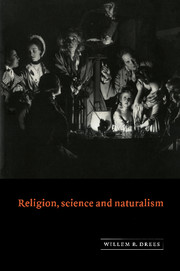4 - Theology and knowledge of human nature
Published online by Cambridge University Press: 14 May 2010
Summary
In the preceding chapters we considered ideas on issues such as divine action in the world, ways of using science in theology, and realism in science and in theology. Someone who is uncomfortable with my conclusions may argue for a different outcome on one or more of these issues. Another option, however, is to argue that the discussion was misconceived since the character of religion was wrongly construed.
One way to question the relevance of knowledge of the world to religion could be to emphasise the distinction between God and the world, and argue that therefore God's mode of creative action is not to be understood along lines similar to our understanding of natural processes in the world. Such a distinction may be articulated as one between temporal processes and an a-temporal divine creative and sustaining act [13.3]. If the difference between God and the natural world is strongly emphasised, it seems less relevant to consider implications of the natural sciences for theology. However, such an advantage is also a liability: due to the strong claim that divine and natural action are different, it may become totally unclear how to think of God's relation to the world, or, if the imagination is fertile enough to propose some models, any model may appear to be totally irrelevant, at best a mere option which might be attached to one's view of the world and one's way of life [31.3].
- Type
- Chapter
- Information
- Religion, Science and Naturalism , pp. 162 - 235Publisher: Cambridge University PressPrint publication year: 1996

